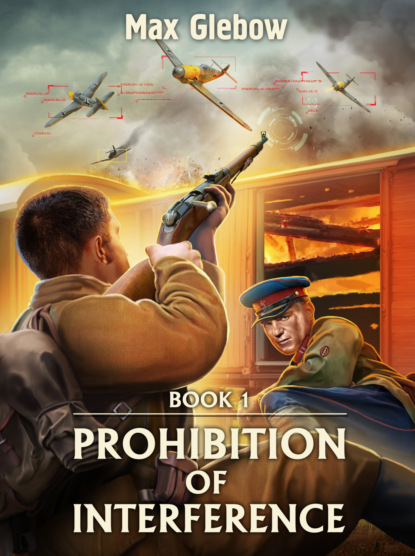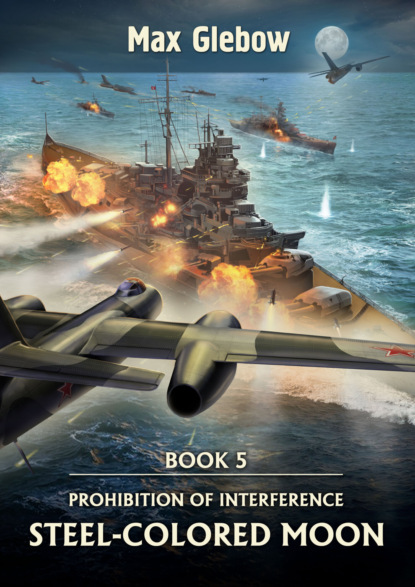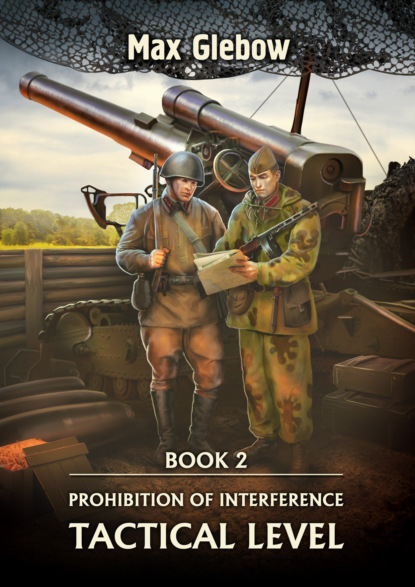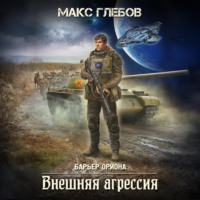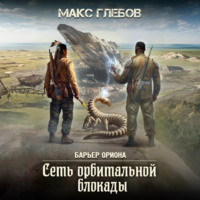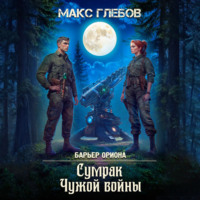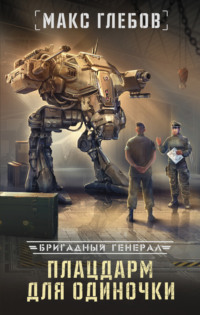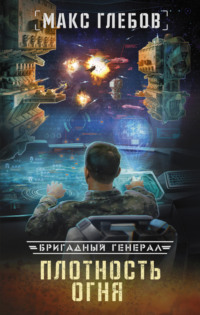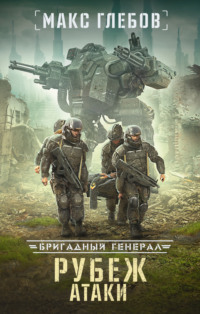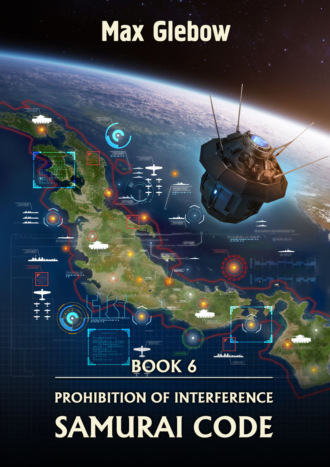
Полная версия
Prohibition of Interference. Book 6. Samurai Code
I was getting worse and worse. My headache was getting stronger, and my hands on the wheel were trembling sensibly.
“You have a severe concussion,” Letra commented on my condition. “It would be fatal for any local, but your body should be able to handle it. You need peace and deep medicated sleep with forced regeneration.”
“Are you kidding me? What kind of peace is there? Unless it's eternal… The Japanese are just getting ready to give it to me.”
The Japanese were really getting ready. And they've even begun to do it. Six dozen fighters took off in two waves from Taiwan. Normally they wouldn't have caught up with us, but now… By our standards, the group was barely moving. The altitude was two thousand, the speed was four hundred. My only engine couldn't provide more speed – it was starting to overheat. According to Letra's calculations, the enemy would catch up with us just over the coast, and the Zero planes, which took off from the outskirts of Hong Kong, would arrive there even earlier. True, by that time the main forces of Kudryavtsev's regiment should arrive to help us and give the Japanese a heated encounter, but all this air slaughter would begin exactly where I would have to leave the plane, if I was still conscious of course, which, given the dynamics of my well-being, was not at all guaranteed.
I underestimated the fury of the enemy. Taiwan and Hong Kong were just the beginning. Another large group of Japanese fighters took off from airfields around Shanghai, and they clearly knew our course and speed, as well as the fact that we could not turn sideways anywhere. The Japanese clamped us on three sides, slamming the trap tightly, and by their calculations we had no way to break out of it.
“I analyzed the condition of the disabled engine,” Letra seemed to be trying to find a way out of the situation the whole time, too, “It's cooled down, and if you get hard pressed, you can try to get it running again. There's a good chance it will work, but it won't last more than three or four minutes, the damage is still there. Then the fire will start again, and it will be impossible to put it out.”
“My side window is damaged. I can't reach top speed anyway.”
“No one says anything about top speed, but you'll get up to six hundred, and that should be enough to get away from the Zero planes a little or get out of the dogfighting zone.”
“I got it,” I had neither the energy nor the will to argue with Letra – I felt like my head was splitting in pain.
* * *“Our Asians have shitty planes, Commander,” said the deputy armament chief contemptuously, looking skeptically at the holographic projection of the battle area. “They have no speed, no armor, no normal weapons.”
“What did you want from the savages?” Hirch sniggered. “It's all primitive on this planet.”
“No, it isn't. The aircraft carrier was destroyed by superior machines.”
“They're not a masterpiece either,” the Lieutenant Commander shrugged, “though compared to everything we've seen here before, their characteristics are impressive. It was not for nothing that the computer immediately singled out this air force unit, as something that required our attention. In addition, the scientific satellites in orbit are also clearly playing on their side – our drones could not block their communications for a reason.”
“And yet, they have already lost two planes and one more plane will definitely not make it to the base.”
“None of them will make it. We gave the Japanese information about the course of their retreat. From here on, I hope our wards will do everything themselves. You better tell me this, Korff,” the destroyer commander looked intently at his subordinate. “Where did these planes come from in this out-of-the-way hole called China? None of the parties to the conflict have anything like that, but the Chinese do.”
“The Chinese probably had nothing to do with it. After all, you can draw any identification marks on the wings, so the Chinese origin of these planes is most likely a fiction,” the head of the engineering service joined in the discussion. “Unfortunately, the satellite database we hacked contains only information up to the beginning of 1941. At that time, no nation on this planet was at all ready to mass-produce something like this.”
“Wherever those planes came from, they could interfere with our plans, especially if there are many of them,” Hirch replied, continuing to watch as more and more marks of Japanese fighters taking off to intercept the Chinese planes lit up on the virtual map. “We need to stop their production, and first we need to at least understand where they are made.”
“Probably in the U.S. or Great Britain. Germany would not supply weapons to China, and everyone else is certainly not up to to this kind of technology,” the engineer suggested.
A scattering of red dots flashed on the hologram.
“Observing Chinese fighter-bombers taking off from a base near Chongqing,” the space control operator reported, “These are the same type of planes as the ones that sank the Japanese aircraft carrier. Fifteen machines are already in the air, forty-three more are preparing for takeoff.”
“Well, we've already seen them in the night fight,” grinned Hirch, “let's see what they're capable of during the day. How many planes will the Japanese have time to pull in to the battle site?”
“One hundred and thirty Marine Zero planes and about a hundred Army I-1 Falcon planes. Almost a threefold preponderance.”
“Computer, give me a prediction of the results of the fight.”
“There is little data on the capabilities of Chinese aircraft,” the artificial intelligence replied in a colorless voice. “In combat with Japanese ships they carried different types of weapons. There may be a high margin of error in this estimate.”
“Report the most likely scenario.”
“Losses on both sides of up to 70 percent of the machines with an overall uncertain outcome. Combat will stop on its own due to the exhaustion of ammunition and fuel by the surviving enemies.”
“That suits us,” the destroyer commander's lips curved into a satisfied chuckle.
* * *I seemed to have passed out or fallen into a semi-conscious state for a while, but I nevertheless didn't let go of the control column. When I was able to perceive my surroundings again, there was a mountainous coastline ahead, riddled with coves and bays.
“Come to your senses, Lieutenant! You're about to be shot down!” Letra's voice is screaming in my head.
The dawn sky blazes with thousands of lights. Tracer bullets and shells tear up the air. Flashes, plumes of smoke, and burning debris falling into the water and onto the rocks. In front of me I see the silhouette of a Zero plane trying to approach an IL from behind. My hands pull the control column to the left, adjusting the course. Burst! Flash! Some debris flies from the tail of the Japanese plane…
“Irs, what are you doing?!” It's Letra.
“Commander, can you hear me?!” it's Kudryavtsev. “Get out of the fight! You can't fight in this damaged plane! They'll meet you on shore. Lebedev and his men are already in the air. Stay out of this fight!”
“Lieutenant, you're only preventing your pilots from fighting!” Letra throws in a new argument, “They are covering your plane and are forced to fight at low speeds. Fly to the shore!”
Yes, this is serious. Letra is undoubtedly right, and so is Kudryavtsev, and I'm not thinking clearly right now, and I'm acting on reflexes. What did my girl-friend say about the right engine? Perhaps it's about time. My IL twitches and spits out a long and uneven stream of fire from the nozzle of the damaged engine, but I am noticeably pressed into the seat. The air roars into the hole in the glazing. Good thing the shrapnel didn't hit the front of the cockpit.
I'm heading toward shore with a descent, breaking out of the "dogfight." A Japanese Falcon is coming after me, but one of ours immediately cuts it down with a burst of his cannon. I see an IL burning ahead-right. Its engine, engulfed in flames, is enveloped in smoke and steam – the automatic fire suppression system is triggered, but the damage is too extensive. The airplane's wing bends at an unnatural angle and fractures, and the plane plummets into a disorderly fall.
All this I note only at the edge of my consciousness. I'm still very sick, and I can hardly keep my focus on the shoreline, which is doubling and bouncing from side to side. My plane keeps accelerating. Letra is muttering something in my head, and somewhere in the background I hear Kudryavtsev's foul language, and I squeeze the control column and try not to pay attention to the fact that the plane begins to shake and rock more and more.
A sharp pain pierces my neck. It seems that Letra used a last resort, causing the implant to deliver a shock discharge. This brings me to my senses a little and Kudryavtsev's scream bursts into my ears:
“Commander, you're on fire! Jump immediately!”
The right wing is engulfed in flames. The plane vibrates as if struck by dozens of heavy hammers, but the hills, sparsely forested, are already glimpsed below. I fumble for the catapult lever and pull it sharply toward me. The cockpit hood flies up and backwards with a pop, and the mighty kick of the gunpowder charge throws me out of the dying plane along with the seat. It's a good thing I insisted on equipping the new ILs with this device, made for us in the U.S. – I certainly wouldn't have made it on my own.
The canopy of the parachute opens overhead with a pop. Another jerk sends me back into unconsciousness, but it does not last long. Letra makes me come to my senses again in the same disastrous way. A Japanese Zero emerges from somewhere on the side, and begins to turn in my direction. Apparently, these are the last seconds of my life. It seems, I'm finishing badly, and it's a shame, it was going so well.
Why is Letra silent? She probably has nothing to say to me – there's nothing one can do in this situation anyway. A few seconds more and I'll be in the sights of the Japanese pilot… I want to close my eyes, but I force myself to look at the approaching death. The rumble of air cannons bursts into my ears, but for some reason I don't see any flashes. Perhaps my vision is failing me, or I'm just already dead and it's a quirk of my fading consciousness… Several tracer streaks of cannon shells are crossed over the Japanese fighter that is about to attack me. The Zero is literally torn apart. It does not even burst into flames, but rushes to the ground as a pile of shapeless debris. Right above my head, three ILs roar through the air. It seems that a few more lines have been added to my list of debts in this world.
The ground hits my feet. I don't feel pain, it's too weak compared to my head, which feels like it's splitting apart. I look around and sluggishly collapse the parachute. There is no wind. At least I was lucky on this, otherwise I would have had problems landing. The air battle is still raging overhead, but its intensity is clearly diminishing.
I unbuckle the cords and try to get to my feet.
“Lieutenant, you're almost done,” Letra's voice cuts through my head again. “There's not much left. You need to take cover under the trees. Do you see a small grove right in front of you? It's relatively safe there. It's only eighty meters downhill. Come on, you can do it.”
I can't get up, but I can crawl. It's a good thing it's downhill. Everything floats before my eyes. My knees and elbows rake the dry earth, dust and some dry plant chaff are stuffed into my mouth and nose. How long have I been crawling? Five minutes? Ten? It gets noticeably darker around me, and after a few meters I stop, trying to understand what happened.
“All right, Irs, you're here,” Letra's voice sounded distinctly relieved, “The plane with Colonel Lebedev's group is on its way. You can safely pass out.”
I groan and roll over onto my back and close my eyes. The world around me fades away.
Chapter 4
The phone call interrupted Colonel Schliemann who was writing another analytical report, which was suddenly required by the General Staff of the Ground Forces.
“Erich, I need you,” the concentrated voice of Major General Richtengden sounded in the receiver. “Right now.”
“Heinrich, I would need another half hour, I'm almost finished with this reference,” Schliemann asked, brazenly taking advantage of his friendship with his boss.
“You'll finish it later,” Richtengden said. “I'll wait for you downstairs, on the floor minus two, in my back-up office.”
“I'm on my way.”
Schliemann didn't ask any more questions. Floor minus two, that’s serious. There used to be a bomb shelter there, and, in principle, the underground floor still served the same function, but after the liquidation of Hitler, Richtengden, given a new position, equipped a separate office there, which was protected by all possible means against all methods of wiretapping and eavesdropping known at the time. Schliemann did not know all the details, but it seemed that his childhood friend tried to protect himself not only from existing, but also from prospective means of technical intelligence. And this is here in the center of Berlin, behind several security perimeters! A year ago, Schliemann would have considered such actions a waste of resources, but much has changed since then, and now he regarded Richtengden's innovation with complete understanding.
General Richtengden silently pointed Schliemann to a comfortable chair by the wall, came out from behind the table and sat down in a similar chair opposite. They were separated only by a coffee table with a carafe of water and a couple of glasses.
“Something has happened, Erich,” Richtengden said softly as Schliemann settled in his chair and stopped his expectant gaze on him.
“I already figured that out,” Schliemann grinned, “Don't drag it out, even bad news is better than the unknown.”
“I wouldn't call it bad news, but it changes a lot of things. Well, I will not get ahead of myself and start at the beginning. Admiral Canaris came here today.”
“Even so? He didn't summon you to his place, but came himself?” Schliemann slightly arched his eyebrow.
“He knows about this place, and he seems now to be finally convinced that I didn't invest so many reichsmarks in equipping this office for nothing. So he had to come here.”
“Is it something to do with Nagulin again?”
“Yes and no,” Richtengden shook his head vaguely. “The Admiral received very important information, and he received it personally. That's what made him come to me. The way in which the information was transmitted was quite unusual. Canaris was contacted using his home radio. Communication, of course, was one-way, but the invisible interlocutor knew perfectly well what questions the Admiral might have. After this contact, Canaris immediately requested a report from the direction finding service. You know that in Berlin no radio can go on the air, without being instantly detected.”
“And, of course, they didn't hear anything,” Schliemann said affirmatively rather than questioningly.
“Absolutely. None of the direction finders picked up extraneous radio transmitters.”
“Can I get to know what the Admiral has been informed?
“You can. I've been assigned this case, so you're going to be a part of it, too. Canaris was explained in a very detailed and reasoned manner, that the Enigma encryption machine is not at all as good as we imagined it to be, and that the British have been reading our headquarters' correspondence like an open book for a long time. The Luftwaffe, the Kriegsmarine, the Ground Forces – all the most important things they transmit on the radio are laid on Churchill's desk in decoded form, and it's been on his desk for months.”
“The source did not give his name?”
“No. He said only that he was a German patriot and a couple of other unimportant phrases in the same vein.”
“Is this a provocation?”
“It doesn't look like it. The information is already being verified, but the Admiral has no doubts about its truthfulness. His interlocutor was very convincing.”
“That is, someone unknown simply leaked reliable information of great importance to the Abwehr, and at the same time it is completely unclear, how he got it and for what purpose he passed it on to us. Did I leave anything out?”
“You got it right. Now let me ask you a question. Erich, does this remind you of anything? Who else among the players we know can just as easily obtain any information he needs, regardless of the level of secrecy, and immediately use it for his own purposes?”
“Well, not just any information…”
“Are you sure? However, you are right. We were able to hide something, which is why I'm hoping for this office.”
“The Russian marksman? But why would he help us? He's supposed to be our enemy. Wait a minute, though…” Schliemann leaned forward sharply and gazed into Richtengden's eyes.
“I see that you and I have come to similar conclusions,” the General grinned wearily. “Who told us that the Russian marksman is unique? There could be several like him, and perhaps one of them decided to play on our side. It would be good for us to understand why he needs to do that…”
* * *“Mr. President, you instructed me to take personal control of General Nagulin's activities in China and report to you immediately of any news related to him.”
“Yes, Harry, I remember my request,” Roosevelt nodded and tore his gaze away from another ministerial report.
“Four hours ago the radio interception stations "Cast" and "Haipo" recorded an intense exchange of messages between the General Headquarters of the Japanese Navy in Tokyo and their base in Taiwan. Within two hours the intensity of the radio exchange was increasing and it successively included the enemy air bases in Hong Kong, Shanghai and northern Indochina. Decoding the messages took some time, but the result was worth it. A group of fighter-bombers bearing the identifying insignia of the Republic of China invaded Japanese-controlled space, from the Chinese coast. They made a diversionary maneuver, simulating a night raid on Taiwan, and then circled around the island and caught up with the heavy aircraft carrier Zuikaku, accompanied by two destroyers, at sea. Their attack resulted in the sinking of the Zuikaku and one of the destroyers.”
“I was expecting something like that,” Roosevelt grinned. “It seemed to me from the beginning that Nagulin would not be willing to indulge in petty local operations, but decided to show us right away that we took his promises seriously for a reason. But a heavy aircraft carrier… Perhaps this young general once again managed to surprise me.”
“Unfortunately, it didn't go as smoothly as we would have liked,” Hopkins replied without a smile. “The Japanese knew of the impending attack, and the aircraft carrier managed to raise its fighters and the destroyers opened barrage fire on the approaching Soviet planes. The Russians suffered casualties. There is no exact information about the number of downed machines.”
“Did General Nagulin take part in the attack?”
“According to the information received by our military advisors from the Chinese allies, Nagulin led the strike group that attacked the Zuikaku.”
“Has he survived?”
“His fate is not entirely clear. It is known that Nagulin did not die in the battle with the Japanese ships, but all further orders came not from him, but from General Kudryavtsev, who also took part in the attack on the aircraft carrier. After the destruction of the Zuikaku, the Russians' problems did not end. The Japanese somehow became aware of their escape route. The group included damaged planes that could not maintain high speed, and over the coast they were intercepted by enemy fighters, but the reinforcements called by Kudryavtsev managed to reach the Russians. More than 200 Japanese planes were involved in the air battle against about 60 Soviet twin-engine fighter-bombers.”
“It's not a good balance of power,” Roosevelt said softly.
“No doubt. But I can't say that the Russians were defeated in this battle. Both sides suffered heavy losses, but the Japanese had to retreat. Now the Soviet pilots are returning to their airfield. Nagulin is not among them. Our advisor to Chiang Kai-shek's headquarters tried to find out the details, but the Generalissimo was in no hurry to share information, or perhaps he did not have all of it himself. All we know is that the Chinese sent a special group to the site of the air battle, made up of the best graduates of the "Wampu" military school, with the task of rescuing and evacuating the surviving crew members of the downed Russian planes. The Russians also sent their own group. The Chinese personnel at the airfield near Chongqing, where the Soviet air regiment was stationed, turned out to be quite talkative. They saw a group of heavily armed paratroopers loading into a transport plane that flew out right after the fighters, sent to the aid of Nagulin's air group.”
“So,” Roosevelt stood up with a visible effort and took a few steps around the office. It struck Hopkins that the President's movements had become noticeably more confident since their last meeting. “What do we have in the end? The Russians sank the heavy aircraft carrier Zuikaku, taking casualties and getting into serious withdrawal trouble. In the air battle that followed, they shot down an unknown but apparently very significant number of Japanese aircraft, forcing the enemy's surviving machines to flee the battlefield. As a result of all these events, an unknown number of Russian pilots found themselves in territory loosely controlled by the Chinese, and with a high probability they include General Nagulin, allegedly wounded in the battle with an unclear degree of severity. Chiang Kai-shek immediately took action, to help the Russian pilots by sending his best men to the coast, while we remain on the sidelines. Is this normal?”
“We don't have any formal obligations in this case,” Hopkins' voice didn't sound confident, “but the Russians have acted in our interests, fulfilling and, perhaps, even exceeding the verbal promises made to us…”
“That's my point,” Roosevelt grinned. “ Chiang Kai-shek immediately appreciated the potential of Russian technology and clearly wants to show Stalin that China can become a reliable ally. I don't think we should let the Chinese get ahead in this matter. Besides, we have absolutely no interest in the death of General Nagulin. Zuikaku was just the beginning, but if we don't get Nagulin out of there, that will be the end of it – I'm pretty sure that the entire Chinese mission of the Soviets rests on him.”
“It's hard to argue with that.”
“Harry, what do we have in this region? I'm not talking about General Stillwell's Chinese divisions right now.”
“Only aviation, and not the most modern.”
“The Flying Tigers?”
“Yes. Clare Chennault’s's air group in Kunming. That's about sixty P-40 Warhawk fighters. Until recently they were mainly engaged in covering the Burma Road and Rangoon. This is all we can quickly use to help the Russians evacuate their pilots from coastal southeastern China.”
“Harry, I need the Tigers to get their orders today, and as soon as possible – every hour counts.”
* * *I came to my senses from the annoying itching of the implant behind my ear. My head continued to hurt, but it wasn't the same pain that made me pass out. I was lying on a stretcher, swinging gently – I was being carried somewhere, obviously over rough terrain. Judging from the fact that Letra hadn't pulled me out of oblivion earlier, there was nothing threatening me right now. Nevertheless, I was in no hurry to open my eyes right away.
Realizing that I had come to my senses, Letra immediately informed me, “Colonel Lebedev's men found you and five other pilots. There is absolutely no place to land a plane, and the nearest Chinese units are almost forty kilometers away, but these are not the biggest problems. There are three large enemy reconnaissance and sabotage units on the coast. Apparently, the Imperial Navy is preparing another landing, and they've been sent here to find out what's going on. The Japanese have contact with their commanders. Two hours ago they got orders to check the area around the recently ended air battle, and then there were several more communications that I couldn't intercept… Anyway, there's a hunt for you, and if you do nothing, in about twenty minutes your squadron will be ambushed.”


